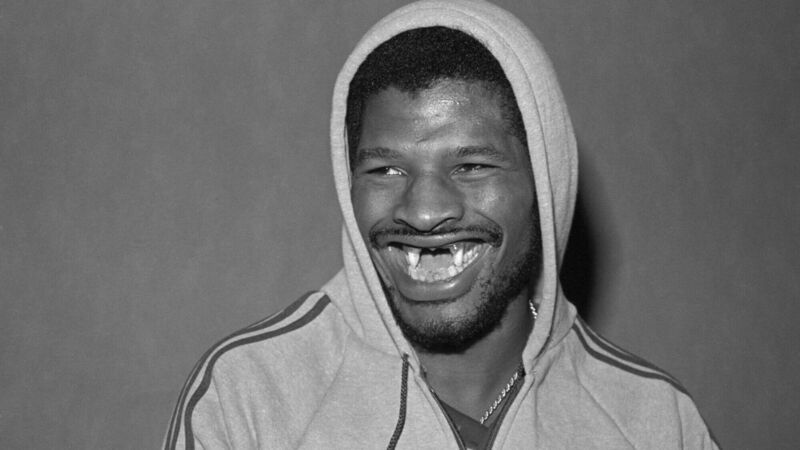Leon Spinks obituary: The no-hoper who beat the Greatest but lost it all

Leon Spinks shows off his famous smile before his title fight with Larry Holmes in 1981. Picture: Getty
Leon Spinks was an overnight sensation, a no-hoper who beat the Greatest. His gap-toothed smile became known around the world and while it was his destiny to become a support-player in the legend of Muhammad Ali, it was a great ride while it lasted.
Spinks died after a battle with prostate cancer at the age of 67 on Friday at a hospital on the outskirts of Las Vegas. He was a gold medallist as part of the greatest United States Olympic boxing team ever in 1976, but it was the 212 days he reigned as world heavyweight champion in 1978 that he is remembered for.











